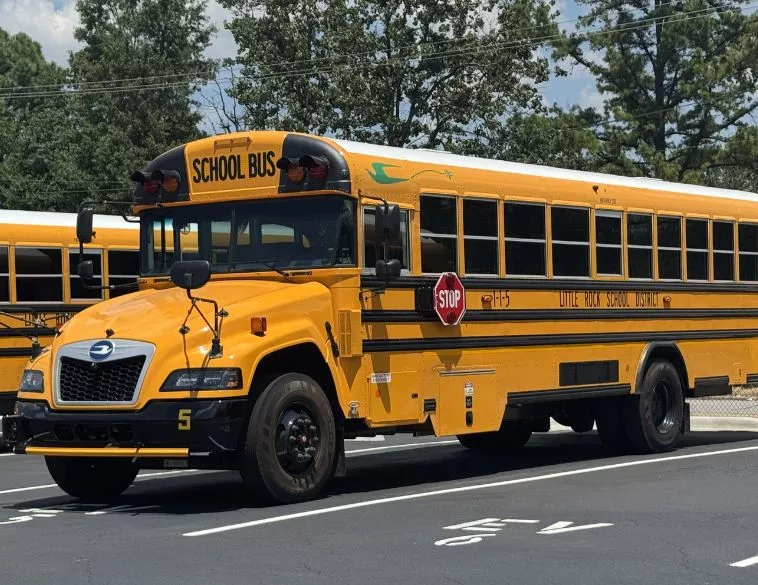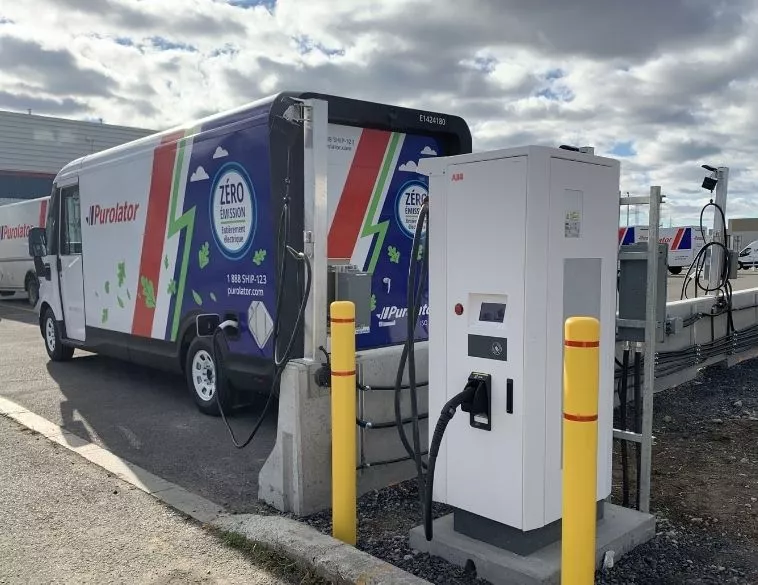Blue Bird Delivers Electric School Bus Fleet to Little Rock School District in Arkansas

Blue Bird Corporation (Nasdaq: BLBD), the leader in electric and low-emission school buses, is delivering 25 electric school buses to Little Rock School District (LRSD) in Arkansas. The zero-emission school bus fleet marks a new era of clean student transportation for the school district. LRSD is the third-largest school district in the state and operates more than 40 schools serving over 19,000 students.
Blue Bird provides its most advanced Vision electric school buses to Little Rock School District. The state-of-the-art electric buses have a vehicle range of up to 130 miles on a single charge and can carry up to 69 passengers. The high-performance batteries take merely two hours to fully recharge.
Following the completion of the Blue Bird electric school bus order, LRSD will maintain a bus fleet of approximately 70 vehicles. LRSD’s zero-emission school buses will travel nearly 1,400 miles each school day, as they pick up and safely transport 500 students to and from schools.
“This is more than just adding new buses—it’s about doing what’s right for our kids and our community,” said Dr. Jermall D. Wright, superintendent of the Little Rock School District. “We’re proud to introduce Blue Bird’s electric school buses as a step toward a cleaner, healthier future. Every mile these buses travel means less pollution, cleaner air, and a stronger commitment to the well-being of our students and the neighborhoods we serve.”
“We are pleased that Little Rock School District continues to place its trust in Blue Bird to help the school district shift to clean student transportation,” said Albert Burleigh, vice president of North America bus sales at Blue Bird Corporation. “For more than 25 years, the school district has relied on Blue Bird and our local dealer partner to meet its school bus and service needs. We look forward to helping LRSD expand its school bus fleet with safe, reliable, and environmentally-friendly vehicles.”
LRSD received a $9,875,000 grant through the U.S. Environmental Protection Agency’s (EPA) widely popular and highly effective Clean School Bus Program to purchase its Blue Bird electric school bus fleet. The EPA has already awarded nearly $3 billion through the landmark bipartisan initiative. The program to date will enable more than 1,300 school districts nationwide to replace old diesel buses with nearly 9,000 electric and ultra-low emission vehicles.
LRSD can considerably lower its operating expenses by replacing diesel with electric school buses due to reduced fuel and vehicle maintenance costs. School districts have reported paying a mere 19 cents per mile in energy costs for electric buses compared to fuel costs of up to 79 cents per mile for their diesel buses.
Blue Bird is the only U.S.-owned and operated school bus manufacturer in the United States. The company remains the proven clean transportation leader with more than 2,500 electric-powered, zero-emission school buses in operation today.
LRSD purchased its advanced electric-powered vehicles through Blue Bird’s authorized school bus dealer Central States Bus Sales in North Little Rock, Ark.





